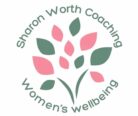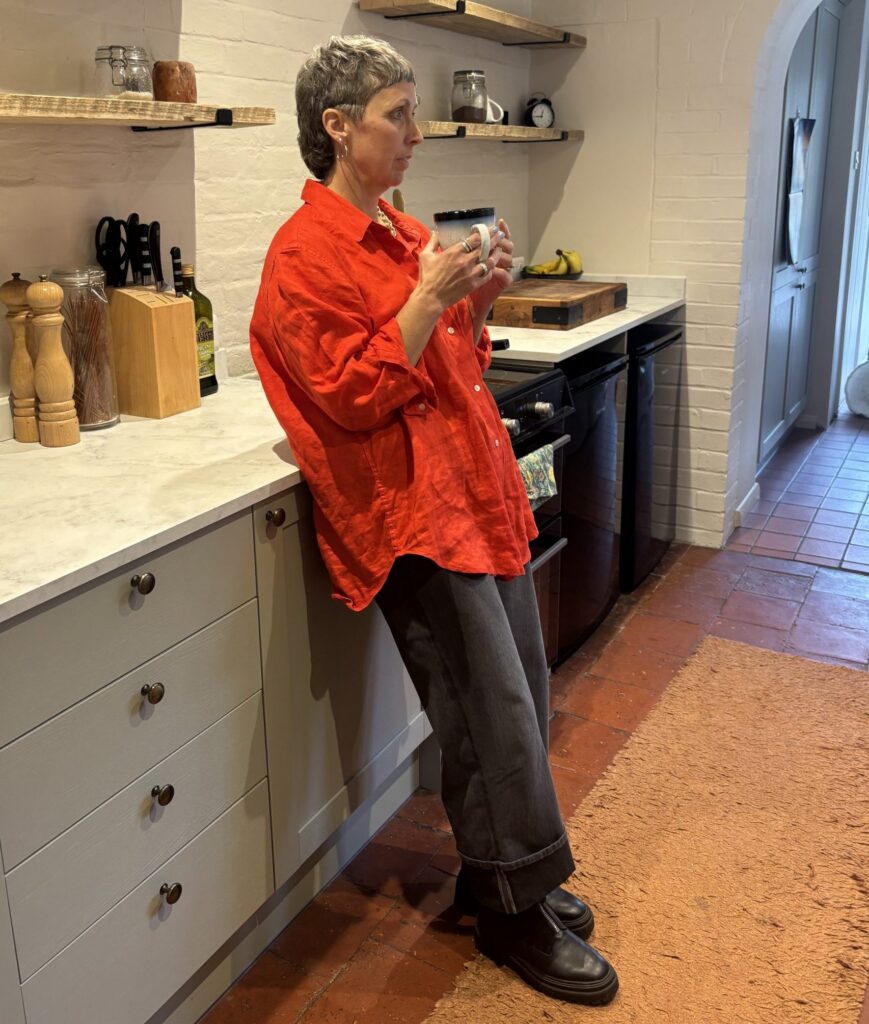“Unmasking Myself: A Journey Through Menopause, ADHD, Autism, and Authenticity”
Have you ever felt like you’re living in a world that just doesn’t quite fit? Like you’re constantly trying to squeeze into shapes that weren’t made for you? That was me for most of my life – drifting through school and work, hiding behind a smile, masking my true self.
But here I am, at 52, post-menopause, finally embracing the real me – neurodivergent, authentic, and thriving. This is my journey through confusion, discovery, and healing – and how coaching helped me find my way home to myself.
Early Days – Lost in the Noise
As a child, I was described as “Little Dolly Daydream”, the one “away with the fairies”, and sometimes as “highly strung”. I adored time alone in my imagination and could amuse myself for hours.
Then came school. School didn’t make sense to me. The smells, the noise, the dinner hall – all too much. I would feel sick with anxiety every morning, often hiding in the toilets retching as the smell of school dinners filled the air.
Lessons were bewildering. I’d put my hand up to look like I knew the answer, secretly hoping the teacher wouldn’t pick me. If I was chosen, I’d either mumble “I’ve forgotten” or make a wild guess – both usually ending in humiliation.
Playtimes weren’t much better. I had two close friends, but I often said things that upset them without meaning to. “You can be the witch, because you’ve got a pointy witchy nose,” seemed perfectly logical to me at the time! I also fought a lot – out of frustration, confusion, or simply not understanding the rules of the game.
Sports? A total minefield. Too many rules, too much chaos. Football meant own goals and being kicked in the shins. Hockey was downright dangerous (for anyone within swinging distance of my stick). Tennis I liked – as long as it was against a ball machine.
Secondary School – The Class Clown
Starting secondary school, I quickly realised I was behind my peers. I tried, but the labels came thick and fast: disruptive, disrespectful, too chatty, distracting others. I became the class clown as a survival strategy.
By 14, I had discovered alcohol and cigarettes. Home life was tricky, and rebellion came easily. I was expelled from three GCSE classes but somehow came away with five passes – top marks in English and Drama, bottom in Art (a real achievement considering the amount of class clowning I did).
A careers adviser suggested a BTEC. I lasted two or three days at college before deciding education wasn’t for me. I joined a Youth Training Scheme at a building society – my first full-time job. For the first time, maths made sense because it had a real life purpose to it, calculating percentages for interest on mortgages and more brought maths to life. Looking back, I now know my struggle with maths wasn’t just linked to the lack of ability to concentrate, but to dyscalculia, often seen alongside autism and ADHD.
Working Life – The Square Peg
I worked, made friends, went out at weekends, and followed what I thought was “normal life.” The early 90s were all about pubs, wine bars, and binge drinking (helped along by the fact pubs only opened for a few hours at a time). Alcohol became my social crutch – my way of feeling confident and chatty.
But I struggled with workplace politics and “acceptable” behaviour. Managers told me I made too much eye contact. Others said I didn’t make enough. Handshakes baffled me. I moved jobs often, unable to tolerate environments that made no sense to me. One job ended in my first adult meltdown – shaking, exhausted, and handing in my resignation the next day.
Finally, I found my place. A forward-thinking company that valued autonomy and personal growth. I stayed for ten years, learning to develop both myself and others – and it was here I first discovered the power of coaching.
Motherhood – and a New Chapter
During those ten years, I had three children. After my youngest was born, I left work to be a full-time mum. Childcare costs were sky-high, and I didn’t yet know all three of my children were neurodivergent. I spent much time and energy trying to fit my square pegs (my children) in to the round holes at school which involved relentless “fights” with the system, two tribunals and, ultimately, three children (now adults) let down by the education system despite my best efforts, and struggling daily to find their place in society.
Fast forward to 2017: I got sober. I’d started yoga and meditation and was beginning to heal – but I still had no idea I was neurodivergent myself.
Menopause and the ADHD Realisation
In 2021, in the middle of my menopause transition, I sat in on my eldest’s ADHD assessment. They’d been diagnosed autistic at 8 and now suspected ADHD. As I listened, I mentally ticked “yes” to almost every symptom.
At the time, I was training as a personal trainer, having once again failed to cope with working for someone else. Studying after so many years was hard. Motivation was low, procrastination was high, and my self-paced courses gathered dust. I would leave work unfinished for so long that I had to start over from scratch.
Eventually, I sought my own ADHD diagnosis – not just for clarity (especially with the “Isn’t everyone a little ADHD?” comments flying around) but to see if medication might help. It did. In 2022, diagnosed and medicated, I completed my courses, qualified, and launched my business.
Discovering Autism – Unmasking in Menopause
As I dived deeper into female ADHD research, I began to see many parallels with female autism too – a connection that hadn’t been obvious before. I recognised traits in myself and sought out an autism assessment.
At 51, I was diagnosed autistic. But it wasn’t straightforward. The assessment process is still largely based on how autism shows in males, making it a tricky path for women like me.
It’s thanks to menopause (and the fading ability to mask my true self) that my autistic traits have become more visible. Traits I can now trace back to early childhood: the pointy witchy nose comment, my social struggles, my sensory sensitivities. Menopause has unmasked parts of me that had long been hidden, and that recognition has been profoundly freeing.
Where I Am Now
Today, I own my neurodivergence fully – both ADHD and autism. I understand my past, and I can see the path ahead. I know what I can and can’t tolerate. I self-advocate more. I still people-please, and yes, I still mask – but I catch myself more quickly.
I believe society is slowly adapting, but change only happens if we educate, advocate, and keep speaking up. Coaching is a huge part of that.
Coaching invites us to strip away the “shoulds” and get to the truth of who we are. It asks the big why questions – of ourselves, of
others, of society. It’s a space where authenticity can thrive, where we stop looking for answers outside ourselves and start trusting our own.
Today, at 52, I am post-menopause, happy, content, and peaceful. I laugh when I want to, cry when I need to, and no longer apologise for taking up space. I am enough. I am worthy.
Menopause, late-discovered neurodivergence, and the guidance of incredible coaches and therapists have brought me here. My hope is that others can find this sense of self too.
So, to close, if you’ve ever felt like you’re struggling to fit the mould, you’re not alone. Our society’s expectations often overlook the beautiful complexity of women’s lives – especially those of us who are neurodivergent or navigating hormonal changes.
My hope is that by sharing my story, you’ll feel seen, heard, and encouraged to embrace your own unique journey. You don’t have to wear masks to be worthy. You are enough just as you are.
If you’d like to explore your own path to authenticity and wellbeing, coaching might be the gentle nudge you need. Because the world needs more women living fully and fearlessly as themselves.

